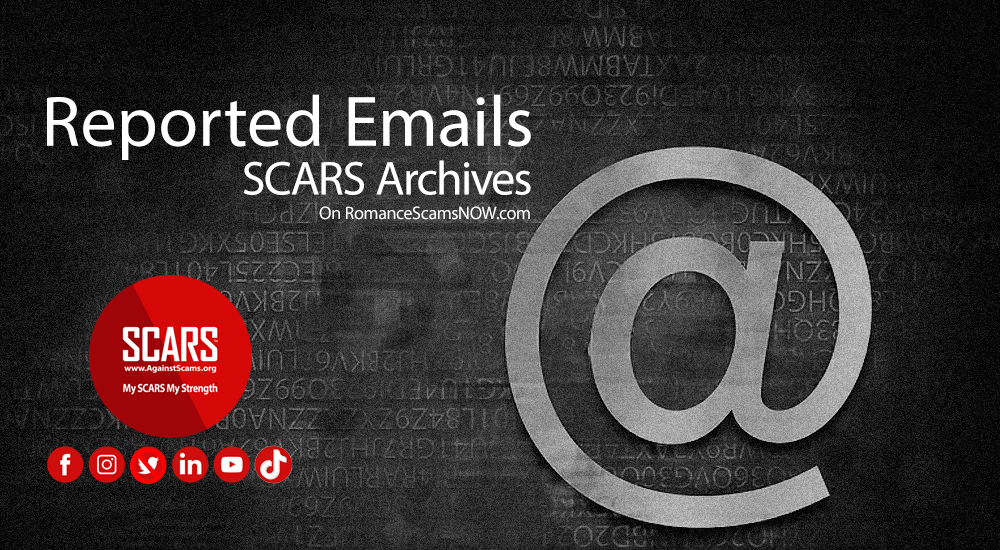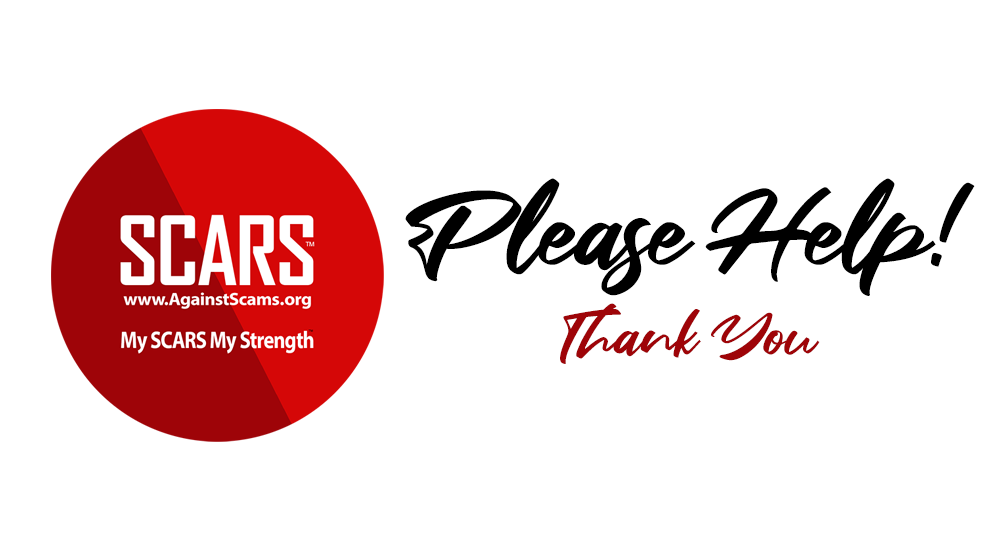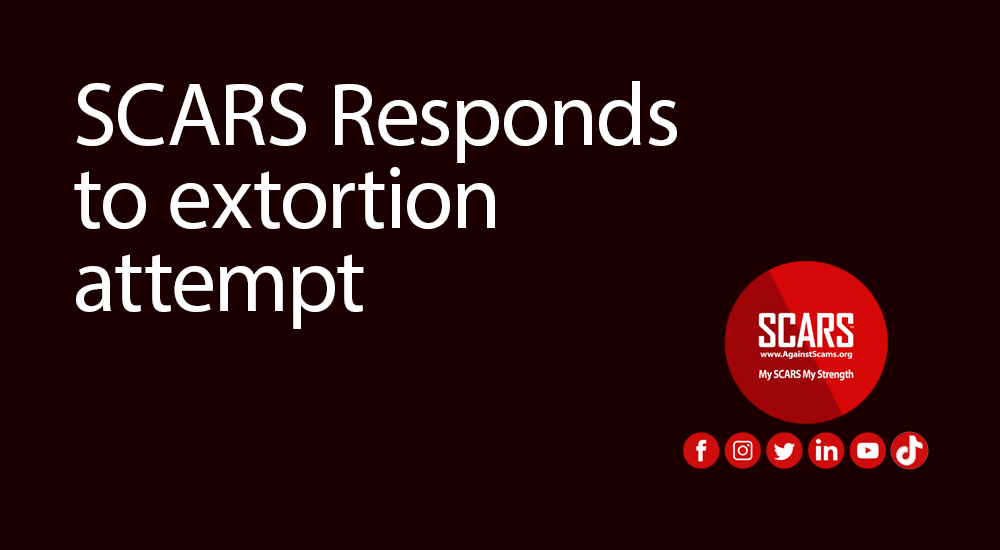
SCARS Institute’s Encyclopedia of Scams™ Published Continuously for 25 Years

FEDERAL TRADE COMMISSION OVERTURNS OBAMA ADMINISTRATION ON FTC RESTRICTIONS AGAINST INTERNET ENFORCEMENT!
EDITOR’S NOTE: The Obama Administration significantly tied the hands of government regulators in policing and protecting users of the Internet. This marks the 6th major accomplishment in 2017 by the Trump Administration is working to secure, protect, and enforce laws that protect us all online. In addition, the SCARS Chairman was in Washington, D.C. on December 1 meeting with the FTC over this issue. SCARS plays an active role in working with Government to bring about significant change, and this is but one example.
Statement from Acting FTC Chairman Maureen K. Ohlhausen on the FCC’s Approval of the Restoring Internet Freedom Order:
FOR RELEASE
Federal Trade Commission Acting Chairman Maureen K. Ohlhausen issued the following statement in response to today’s vote by the Federal Communications Commission (FCC) on the Restoring Internet Freedom Order:
“The FCC’s action today restored the FTC’s ability to protect consumers and competition throughout the Internet ecosystem.
The FTC is ready to resume its role as the cop on the broadband beat, where it has vigorously protected the privacy and security of consumer data and challenged broadband providers who failed to live up to their promises to consumers.
In addition, the FCC’s new transparency rules provide additional tools to help ensure that consumers get what they expect from their broadband providers, who will be required to disclose their traffic management practices.
The Memorandum of Understanding establishes a framework for FTC-FCC cooperation. Together we will move ahead to protect consumers and help ensure they enjoy the many benefits of online innovation.”
The Federal Trade Commission works to promote competition, and protect and educate consumers.
For more information: https://www.fcc.gov/document/fcc-takes-action-restore-internet-freedom
TEXT OF MEMORANDUM OF UNDERSTANDING
RESTORING INTERNET FREEDOM
FCC-FTC MEMORANDUM OF UNDERSTANDINGThis Memorandum of Understanding (“MOU”) is entered into by the Federal Communications Commission (“FCC”) and the Federal Trade Commission (“FTC”) (collectively, the “Agencies”) for the purpose of facilitating their joint and common goals, obligations, and responsibilities to protect consumers and the public interest. The Agencies recognize and acknowledge that each agency has legal, technical, and investigative expertise and experience that is valuable for rendering advice and guidance to the other relating to the acts or practices of Internet service providers.1
The Agencies further recognize, and this MOU reflects, that:
(1) Pursuant to the FCC’s authority under the Communications Act of 1934, as amended, on December 14, 2017, the FCC adopted a Declaratory Ruling, Report and Order, and Order in the proceeding Restoring Internet Freedom, WC Docket No. 17-108, Declaratory Ruling, Report and Order, Order (“Internet Freedom Order”), which, in principal part, restores broadband Internet access service to its Title I information service classification, reinstates the private mobile service classification of mobile broadband Internet access service, and returns to the Transparency Rule the FCC adopted in 2010 with certain limited modifications to promote additional transparency. As authority for the Transparency Rule, the FCC relies on Section 257 of the Communications Act, among other provisions, which requires the FCC to identify and eliminate market entry barriers for entrepreneurs and other small businesses in the provision and ownership of telecommunications services and information services and to report to Congress on how such marketplace barriers have been addressed by regulation or could be addressed by recommended statutory changes; and
(2) Congress has directed the FTC to, among other things, prevent unfair methods of competition and unfair or deceptive acts or practices in or affecting commerce under Section 5 of the Federal Trade Commission Act, 15 U.S.C. § 45, and has charged the FTC with enforcing a number of other specific rules and statutes.
Therefore, it is agreed that:
1. Consistent with its jurisdiction and to fulfill its duties under Section 257 of the Communications Act, among other provisions, the FCC will monitor the broadband market and identify market entry barriers by, among other activities, reviewing informal complaints filed by consumers, and will investigate and take enforcement action as appropriate with respect to failures by an Internet service provider to comply, in whole or in part, with the Internet Freedom
Order’s requirements to file with the FCC or display on a publicly available, easily accessible website the specified subjects of disclosure.
2. Consistent with its jurisdiction, the FTC will investigate and take enforcement action as appropriate against Internet service providers for unfair, deceptive, or otherwise unlawful acts or practices, including but not limited to, actions pertaining to the accuracy of the disclosures such providers make pursuant to the Internet Freedom Order’s requirements, as well as their marketing, advertising, and promotional activities.
3. Consistent with each agency’s jurisdiction and to maximize the resources of each agency, at the regular coordination meeting established by the Agencies’ 2015 Memorandum of Understanding, the Agencies will discuss potential investigations against Internet service providers that could arise under each agency’s jurisdiction, and coordinate such activities to promote consistency in law enforcement and to prevent duplicative or conflicting actions, to the extent appropriate and consistent with law.
4. To further support coordination and cooperation on these matters, the Agencies will continue to work together to protect consumers, including through:
- Consultation on investigations or enforcement actions that implicate the jurisdiction of the other agency;
- Sharing of relevant investigative techniques and tools, intelligence, technical and legal expertise, and best practices in response to reasonable requests for such assistance from either Agency; and
- Collaboration on consumer and industry outreach and education efforts, as appropriate.
5. The FCC and FTC will securely share consumer complaints pertaining to the subject matter of the Internet Freedom Order’s requirements to the extent feasible and subject to the Agencies’ requirements and policies governing, among other things, the protection of confidential, personally identifiable, or nonpublic information.
6. The Agencies may coordinate and cooperate to develop guidance to assist consumers’ understanding of Internet service provider practices.
7. In seeking to encourage and facilitate the enforcement of applicable law, the Agencies recognize that decisions by one agency to take or withhold action are not, except by operation of
law, binding on or intended to restrict action by the other agency.8. To ensure the effective exchange of information between the Agencies, the persons signing below and their successors shall be deemed Designated Liaison Officers to serve as the
primary sources of contact for each agency. Formal meetings between appropriate senior officials of both Agencies to exchange views on matters of common interest and responsibility shall be held from time to time, as determined to be necessary by such liaison officers.9. The Agencies may from time to time amend this MOU in writing, and such amendment shall become effective when executed by both parties. This MOU may be terminated by either party upon thirty (30) days’ advance written notice.
10. This MOU shall take effect upon the effective date of the Internet Freedom Order. Nothing in this MOU shall be construed to impair or otherwise affect the authority granted by law
to either party. This MOU shall be implemented consistent with applicable law and subject to the availability of appropriations. This MOU is not intended to, and does not, create any right or benefit, substantive or procedural, enforceable at law or in equity by any party against either the FCC or the FTC; their officers, employees, or agents; or any other person.For the Federal Trade Commission, Bureau of Consumer Protection
December 14, 2017
Thomas B. Pahl
Acting Bureau DirectorFor the Federal Communications Commission, Enforcement Bureau
December 14, 2017
Rosemary C. Harold
Bureau ChiefFor the Federal Communications Commission, Consumer and Governmental Affairs Bureau
December 14, 2017
G. Patrick Webre
Acting Bureau Chief
-/ 30 /-
What do you think about this?
Please share your thoughts in a comment below!
LEAVE A COMMENT?
Recent Comments
On Other Articles
- velma faile on Finally Tax Relief for American Scam Victims is on the Horizon – 2026: “I just did my taxes for 2025 my tax account said so far for romances scam we cd not take…” Feb 25, 19:50
- on Reporting Scams & Interacting With The Police – A Scam Victim’s Checklist [VIDEO]: “Yes, this is a scam. For your own sanity, just block them completely.” Feb 25, 15:37
- on Danielle Delaunay/Danielle Genevieve – Stolen Identity/Stolen Photos – Impersonation Victim UPDATED 2024: “She goes by the name of Sanrda John now” Feb 25, 10:26
- on Reporting Scams & Interacting With The Police – A Scam Victim’s Checklist [VIDEO]: “So far I have not been scam out of any money because I was aware not to give the money…” Feb 25, 07:46
- on Love Bombing And How Romance Scam Victims Are Forced To Feel: “I was love bombed to the point that I would do just about anything for the scammer(s). I was told…” Feb 11, 14:24
- on Dani Daniels (Kira Lee Orsag): Another Scammer’s Favorite: “You provide a valuable service! I wish more people knew about it!” Feb 10, 15:05
- on Danielle Delaunay/Danielle Genevieve – Stolen Identity/Stolen Photos – Impersonation Victim UPDATED 2024: “We highly recommend that you simply turn away form the scam and scammers, and focus on the development of a…” Feb 4, 19:47
- on The Art Of Deception: The Fundamental Principals Of Successful Deceptions – 2024: “I experienced many of the deceptive tactics that romance scammers use. I was told various stories of hardship and why…” Feb 4, 15:27
- on Danielle Delaunay/Danielle Genevieve – Stolen Identity/Stolen Photos – Impersonation Victim UPDATED 2024: “Yes, I’m in that exact situation also. “Danielle” has seriously scammed me for 3 years now. “She” (he) doesn’t know…” Feb 4, 14:58
- on An Essay on Justice and Money Recovery – 2026: “you are so right I accidentally clicked on online justice I signed an agreement for 12k upfront but cd only…” Feb 3, 08:16
ARTICLE META
Important Information for New Scam Victims
- Please visit www.ScamVictimsSupport.org – a SCARS Website for New Scam Victims & Sextortion Victims
- Enroll in FREE SCARS Scam Survivor’s School now at www.SCARSeducation.org
- Please visit www.ScamPsychology.org – to more fully understand the psychological concepts involved in scams and scam victim recovery
If you are looking for local trauma counselors please visit counseling.AgainstScams.org or join SCARS for our counseling/therapy benefit: membership.AgainstScams.org
If you need to speak with someone now, you can dial 988 or find phone numbers for crisis hotlines all around the world here: www.opencounseling.com/suicide-hotlines
A Note About Labeling!
We often use the term ‘scam victim’ in our articles, but this is a convenience to help those searching for information in search engines like Google. It is just a convenience and has no deeper meaning. If you have come through such an experience, YOU are a Survivor! It was not your fault. You are not alone! Axios!
A Question of Trust
At the SCARS Institute, we invite you to do your own research on the topics we speak about and publish, Our team investigates the subject being discussed, especially when it comes to understanding the scam victims-survivors experience. You can do Google searches but in many cases, you will have to wade through scientific papers and studies. However, remember that biases and perspectives matter and influence the outcome. Regardless, we encourage you to explore these topics as thoroughly as you can for your own awareness.
Statement About Victim Blaming
SCARS Institute articles examine different aspects of the scam victim experience, as well as those who may have been secondary victims. This work focuses on understanding victimization through the science of victimology, including common psychological and behavioral responses. The purpose is to help victims and survivors understand why these crimes occurred, reduce shame and self-blame, strengthen recovery programs and victim opportunities, and lower the risk of future victimization.
At times, these discussions may sound uncomfortable, overwhelming, or may be mistaken for blame. They are not. Scam victims are never blamed. Our goal is to explain the mechanisms of deception and the human responses that scammers exploit, and the processes that occur after the scam ends, so victims can better understand what happened to them and why it felt convincing at the time, and what the path looks like going forward.
Articles that address the psychology, neurology, physiology, and other characteristics of scams and the victim experience recognize that all people share cognitive and emotional traits that can be manipulated under the right conditions. These characteristics are not flaws. They are normal human functions that criminals deliberately exploit. Victims typically have little awareness of these mechanisms while a scam is unfolding and a very limited ability to control them. Awareness often comes only after the harm has occurred.
By explaining these processes, these articles help victims make sense of their experiences, understand common post-scam reactions, and identify ways to protect themselves moving forward. This knowledge supports recovery by replacing confusion and self-blame with clarity, context, and self-compassion.
Additional educational material on these topics is available at ScamPsychology.org – ScamsNOW.com and other SCARS Institute websites.
Psychology Disclaimer:
All articles about psychology and the human brain on this website are for information & education only
The information provided in this article is intended for educational and self-help purposes only and should not be construed as a substitute for professional therapy or counseling.
While any self-help techniques outlined herein may be beneficial for scam victims seeking to recover from their experience and move towards recovery, it is important to consult with a qualified mental health professional before initiating any course of action. Each individual’s experience and needs are unique, and what works for one person may not be suitable for another.
Additionally, any approach may not be appropriate for individuals with certain pre-existing mental health conditions or trauma histories. It is advisable to seek guidance from a licensed therapist or counselor who can provide personalized support, guidance, and treatment tailored to your specific needs.
If you are experiencing significant distress or emotional difficulties related to a scam or other traumatic event, please consult your doctor or mental health provider for appropriate care and support.
Also read our SCARS Institute Statement about Professional Care for Scam Victims – click here to go to our ScamsNOW.com website.










![SCARS™ Special Report: Rubberband Bank Wire Transfer Scams [Infographic] rubberband bank wire trasnfer scams SCARS™ Special Report: Rubberband Bank Wire Transfer Scams [Infographic] rubberband bank wire trasnfer scams](https://romancescamsnow.com/wp-content/uploads/2019/10/rubberband-bank-wire-trasnfer-scams.png)





Thank you for your comment. You may receive an email to follow up. We never share your data with marketers.